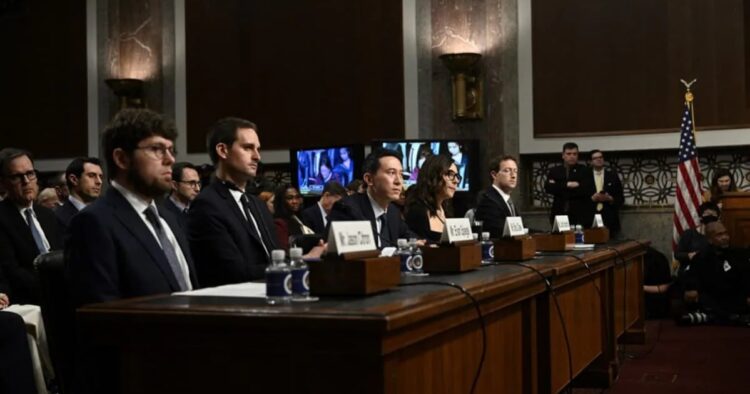In a heated session before the US Senate Judiciary Committee, CEOs of major tech companies faced tough questions about the safety of children and teens on their social media platforms. The focus was on the dangers posed by online predators and the alarming rise in teen suicides associated with social media use.
Executives Appear Before Committee: CEOs including Mark Zuckerberg (Meta), Linda Yaccarino (X), Shou Zi Chew (TikTok), Evan Spiegel (Snap), and Jason Citron (Discord) were summoned to testify. The session, titled “Big Tech and the Online Child Sexual Exploitation Crisis,” delved into the alleged inadequacies of these platforms in protecting young users.
Senator’s Accusations and Apologies: During intense questioning, Senator Lindsey Graham accused Mark Zuckerberg of having “blood on [his] hands,” claiming that social media products were causing harm and even contributing to fatalities. Zuckerberg was asked to apologize to families who had lost loved ones due to the alleged shortcomings of these platforms.
CEO Statements and Defense: Zuckerberg defended Meta’s efforts, stating that the company works hard to provide parental controls and support to minimize potential harms. He argued that online safety for young people has been a challenge since the internet’s inception, requiring continuous adaptation to evolving threats. Additionally, Zuckerberg cited research suggesting that, on balance, social media is not harmful to the mental health of young individuals.
TikTok’s Commitment and Investment: Shou Zi Chew from TikTok expressed empathy as a parent and pledged to invest over $2 billion in trust and safety measures. Chew highlighted that TikTok currently has 40,000 safety professionals actively working on addressing these concerns.
New Safety Measures Announced: Ahead of the session, Meta and X announced new measures. Meta revealed plans to block direct messages from strangers to young teens, allowing messages only from those they already follow or are connected to. Content restrictions on Instagram and Facebook were also tightened to limit access to posts discussing suicide, self-harm, or eating disorders.
Internal Documents and Legal Action: Senators pointed to internal Meta documents suggesting that Zuckerberg had resisted strengthening teams dedicated to tracking online dangers for teens. This revelation was part of a larger lawsuit involving approximately 40 states jointly suing Meta over alleged failures in protecting children.
Legislative Challenges: Lawmakers expressed frustration with the limitations imposed by existing laws, calling for new regulations to enhance online safety. Proposals like the Kids Online Safety Act (KOSA), aiming to protect children from harmful algorithms, and age verification requirements for social media accounts were mentioned. However, the political divide in Washington and powerful tech lobbying have hindered the progress of such legislation.
As the tech executives faced the grilling, the session underscored the urgent need for comprehensive measures to address the growing concerns surrounding child safety on social media platforms. The ongoing legal battles and proposed legislative actions indicate a complex landscape that will likely require concerted efforts from both the tech industry and lawmakers to find effective solutions.

















Comments